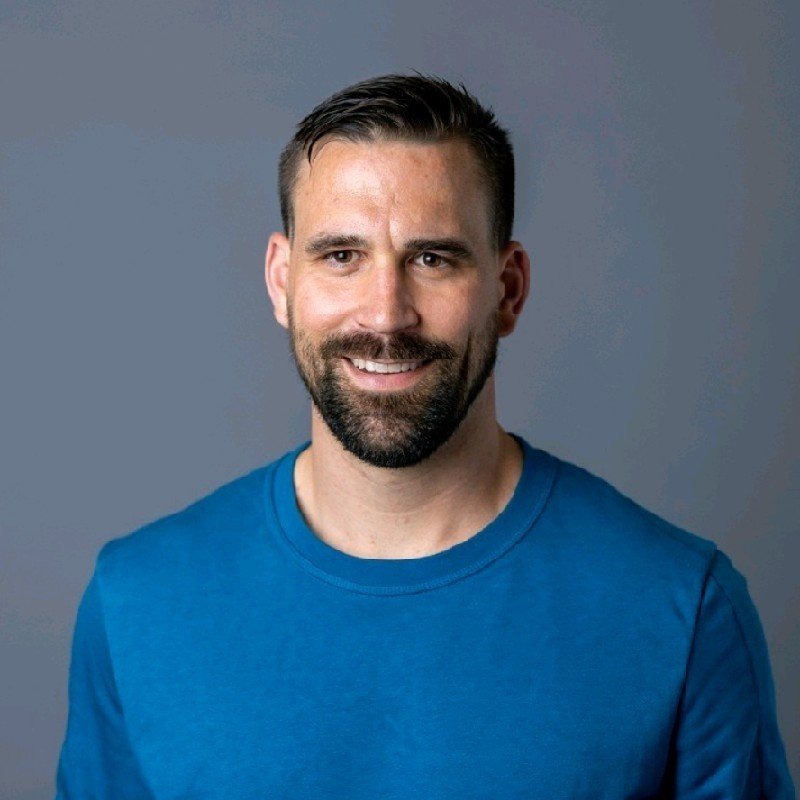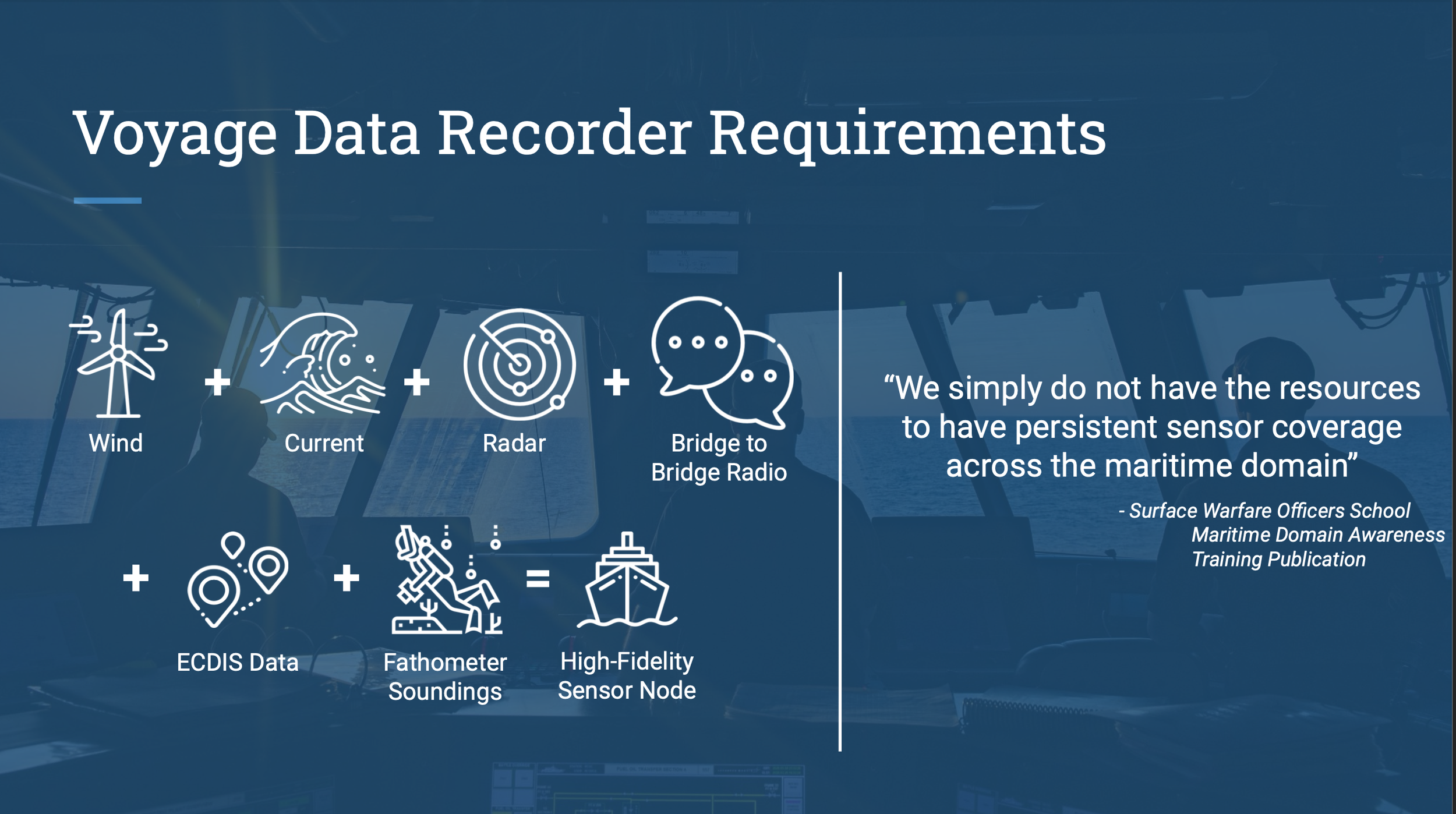Team MARview
Team MARview
University of Chicago
Using Data to Optimize Commercial Shipping
The Team
Eric O'Neil
• MBA from the University of Chicago Booth School of Business, MS in Computer Science from the University of Chicago, BA in International Relations from Dickinson College
• Eric O'Neil is a US Marine with 10 years of active duty service. He started his career as an Infantry Officer in Camp Pendleton, CA, deploying twice as a Platoon Commander to the PACOM and CENTCOM theaters. Eric was then selected as a Special Operations Officer with the Marine Corps Special Operations Command (MARSOC) in Camp Lejeune, NC. He served as a Team Commander, deploying twice to the CENTCOM and AFRICOM theaters. He is currently a reservist with MARSOC G-7.
Brian Schmid
• MBA from University of Chicago’s Booth School of Business, BA in Business Administration from the University of North Carolina at Chapel Hill’s Kenan-Flagler Business School
• Brian is from Raleigh, NC and served in the US Navy for the five years as a surface warfare officer specializing in engineering, ballistic missile defense, and high-speed navigation; deploying multiple times across the globe from his homeports of Rota, Spain and San Diego, California. He graduates from the University of Chicago’s Booth School of Business this Spring and is moving to Washington, DC.
Problem Sponsor
Ross Wilhelm - Naval Sea Systems Command (NAVSEA)
Original Problem Statement
Operations center analysts need to quickly synthesize and assess commercial unmanned vehicle data to holistically leverage vehicle data.
Beneficiary Discovery Interviews
Military and Business Mentors:
32 during the course; 50+ post-course
Todd Henderson - UChicago H4D Professor. Michael J. Marks Professor of Law at UChicago Law School.
Will Gossin-Wilson - UChicago H4D Professor. Professor of Entrepreneurship & Innovation at UChicago.
Captain John Ryan - Associate Professor, Marine Transportation at the US Merchant Marine Academy
Michael Dockman - Managing Director, AMA Capital Partners
Scott Bolick - Fairwater Labs
The Innovation
Eric O’Neil and Brian Schmid, both veterans with distinguished service records, found themselves drawn to the Hacking for Defense (H4D) class at University of Chicago for distinct yet converging reasons. O’Neil, with 10 years in the Marines and now a current Marine Corps reservist, saw an opportunity to leverage his military experience in the realm of defense technology and entrepreneurship. Schmid, a former Navy officer of 6 years, sought to escape the confines of bureaucratic inertia and contribute meaningfully to the defense enterprise. “What was incredibly attractive to me about H4D was the ability to take six years of hard earned skills and tie it to a business education and do something useful for this organization that I care deeply about,” said Schmid.
During the course, Team Marview tackled Naval Undersea Warfare Center and Task Force 59’s problem of enhancing undersea warfare capabilities in the Arabian Gulf. Their problem sponsor originally framed the problem to be a lack of access to data gathered by Task Force 59's drones for the wider Navy, and proposed leveraging data from commercial off-the-shelf drones.
However, customer discovery interviews during the first few weeks of the course led to the team’s first major pivot in the problem statement, when the team discovered that the original problem was already being addressed by a government contractor. The team took this as an opportunity for redirection, driven by the realization through their customer discovery that commercial vessels in the area were already collecting valuable data relevant to naval operations. “Rather than stitching the data, we thought about tapping into the data in the first place, on behalf of our sponsor," said Schmid. “We were freed from the problem, and had us thinking about gathering untapped sources of data out in the sea in the first place.”
Setting off in a new direction, the team dove into further interviews with Task Force 59 and other maritime sources, revealing that those drones over the sea are going past hundreds of commercial vessels as well. “Whereas the drone is collecting data in support of that warship, those commercial vessels are collecting a lot of the same data in support of avoiding storms or avoiding crashing into other vessels in the first place.” The team’s findings further confirmed their new shifted focus. O’Neil stated, “[The conclusions to our findings] turned into Marview, which was our concept of capturing data off commercial vessels for a dual-use proposition. Gathering data from commercial ships to supplement naval intelligence could potentially obviate the need for dedicated drones.
Team MarView’s
Hacking for Defense Experience & Impact
When the team of six initially met at the Booth School of Business, they sought to set expectations and what they categorized as success. They decided: "If things break right and we do a great job and we get a little bit lucky, success for us would be being in a position where we could turn our idea into something that's commercially viable," said O’Neil. With the school's Spring semester startup accelerator program in mind, they saw a seamless transition from idea to business. "You go into the Fall, you do a lot of customer discovery up front. You come up with this idea for a commercial venture, and then you can just port that right over into the Spring and transition it into a real business," O’Neil explained. In Spring 2024, the team entered into the University of Chicago’s New Venture Challenge and placed 4th out of 20 teams competing. However, the maritime industry's slow pace and unexpected competition posed significant hurdles for their startup to take off, leading the team to reassess market viability and their trajectory.
Reflecting on their experience, O’Neil and Schmid emphasize the invaluable lessons learned from the H4D methodology. "Hacking for Defense teaches entrepreneurship the right way," O’Neil explains. "The emphasis on customer discovery and problem framing provided a solid foundation for our entrepreneurial endeavors." Despite the eventual decision to pivot away from their startup venture, the journey itself was invaluable, equipping them with lifelong skills and insights.




